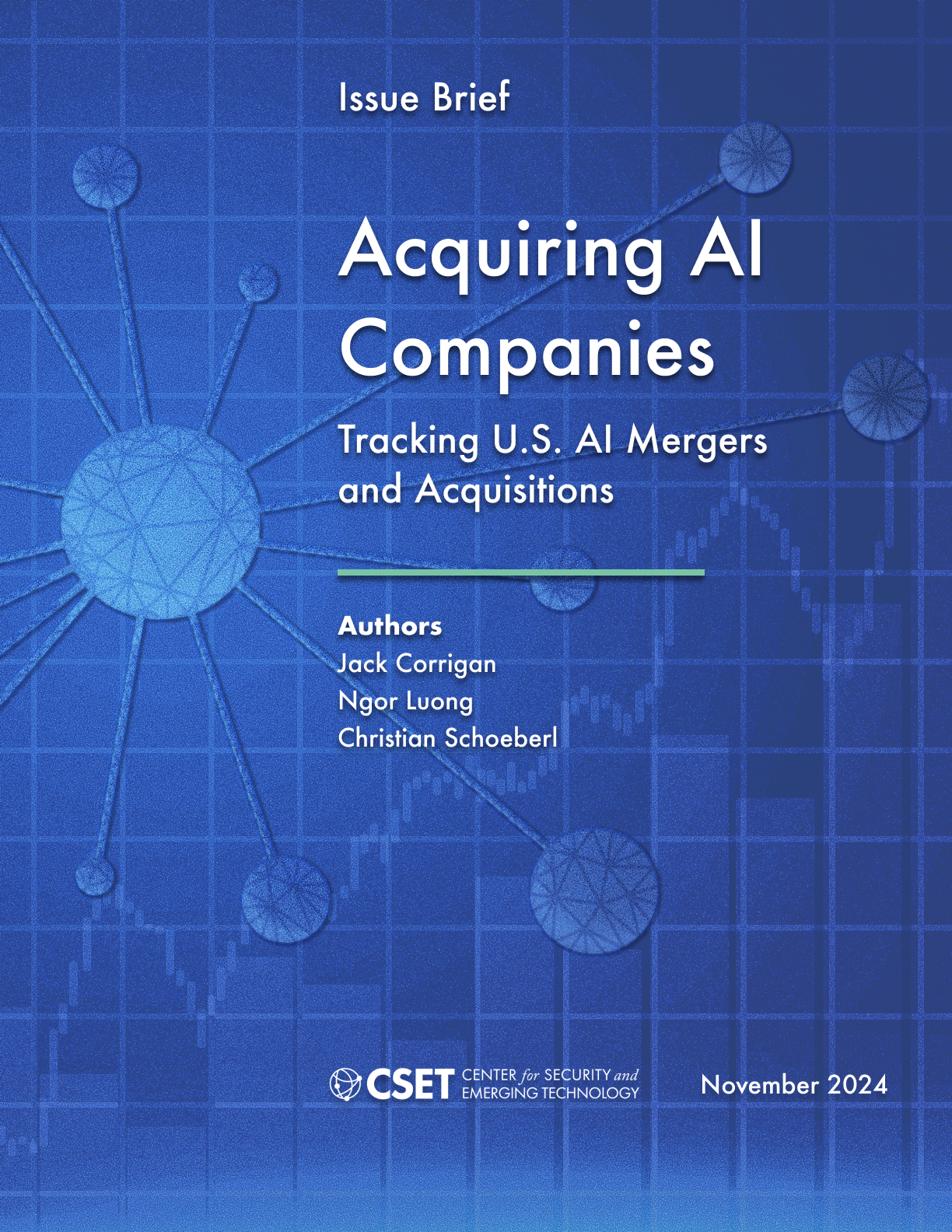Executive Summary
The commercial artificial intelligence industry is evolving rapidly, and the competition dynamics in this burgeoning sector will impact the rate, diversity, and direction of AI innovation in the years ahead. Maintaining U.S. technological leadership in the years ahead will require policymakers to promote competition in the AI sector and prevent incumbent firms from wielding their market power in harmful ways.
One important component of this effort will be monitoring mergers and acquisitions activity in the AI sector. M&A allows companies to gain access to talent, technologies, and other resources that may otherwise be out of their reach or too difficult to develop in-house. These transactions can allow firms to maintain their technological edge, gain economies of scale, and expand their business, all of which can drive growth and promote the healthy functioning of a market economy. On the flip side, however, M&A can also enable companies to entrench their economic power, reduce incumbent firms’ incentives to invest in innovation, and hamper the ability of new disruptive firms to enter the market.
This brief seeks to shed light on major trends in M&A activity in the U.S. AI sector between 2014 and 2023. Our analysis is based on a dataset of 4,354 M&A transactions gathered through PitchBook, a third-party provider of corporate financial information. We found:
- Annual M&A transactions involving AI companies more than doubled over the last decade, from 225 in 2014 to 494 in 2023. However, M&A transactions have declined since their peak in 2021 (828).
- The proportion of total M&A transactions in which non-AI companies acquired AI companies grew from 10 percent in 2014 to 45 percent in 2023. Still, the majority of these acquisitions were conducted by other companies in the technology industry rather than firms in other sectors.
- Large incumbent technology companies rank among the top acquirers of AI companies, including Apple (28 transactions), Alphabet (23), Microsoft (18), and Meta (16). However, the overall AI M&A activity remains fairly diffuse, with 1,446 unique acquirers engaging in AI M&A transactions over the past decade.
- In U.S. cross-border AI acquisitions, American firms have purchased 503 foreign AI companies, while foreign firms have bought 271 American AI companies. U.S. firms most frequently acquired AI firms based in the United Kingdom and Canada. Firms in the United Kingdom and Canada were also the most frequent foreign acquirers of U.S. AI companies.
The commercial AI sector is still in its infancy, and the dynamics of market competition today can have major effects on the trajectory of AI innovation tomorrow. Continuing to monitor the landscape of M&A transactions at home and abroad—particularly those involving incumbent technology companies—will be crucial to promoting an innovative and dynamic AI ecosystem in the years ahead. Additionally, it will be important for competition authorities to update their processes and procedures to appropriately scrutinize alternative business arrangements such as “partnerships” between incumbent firms and AI startups, which function similarly to traditional acquisitions but appear to avoid regulatory frameworks.
